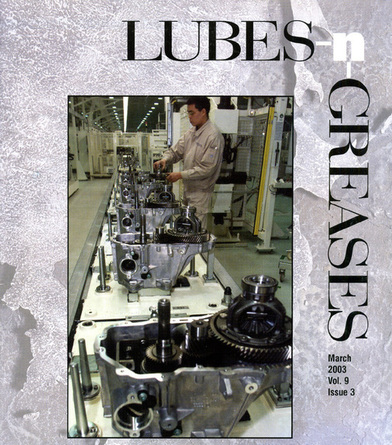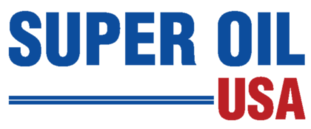How Often Should I Change My Oil
(Lubes-n-Greases)
Consumers are “Suckered” into Frequent Oil Change Intervals Because of the “Industry-Coerced 3,000-Mile Strait Jacket”AMSOIL Applauded for Extended Oil Change Intervals“
How Often Should I Change My Oil?” is a question that often has the unclear or inexact answer, “it depends.” When you read the Lubes-n-Greases article below, you’ll understand why. Although this article about oil change intervals was written a while ago, the information is still relevant and it still explains what is happening in the oil industry today because very little has changed since it was written.
Over a decade ago, it was written that no standards exist in the U.S. that distinguishes premium synthetic oils, such as AMSOIL, from conventional motor oils and this is still true today. The author credited a tiered motor oil rating system in Europe (that rates oils as to their quality level and drain interval capabilities) that allows European vehicle manufacturers to encourage longer oil change intervals, if a higher quality oil is used. Unfortunately, still to this day, U.S. motor oils are only required to pass a MINIMUM quality standard, which continues to leave consumers uncertain as to how often you should change your oil.
Lubes ‘n’ Greases Automotive Editor David McFall, who once spent five years at the American Petroleum Institute, wrote an in-depth article (February 2003) on the subject of extended oil drain intervals. McFall writes, “Wrapped tightly inside the industry-coerced 3,000-mile strait jacket, consumers get suckered into frequent drain intervals and millions of unnecessary oil changes.”

Oil Change Intervals Article in Lubes-n-GreasesMcFall revealed that U.S. motor oils are only required to meet a minimum performance standard. Though the current “starburst” certification decreases the likelihood that consumers would get substandard oils, it only offers consumers a “one-size-fits all” quality level.
In a subsequent column (March 2003) he reported, “U.S. vehicle manufacturers have expressed interest in lengthening drain intervals. General Motors has stated it wants to compete on drain intervals, but the current lowest-common-denominator system offers little incentive or opportunity for technical enhancements.”
Meanwhile, in Europe, with a tiered motor oil system and car manufacturers that encourage longer drain intervals if higher quality oil is used, McFall reported that the average oil change is 10,000 miles. In his in-depth article, he pointed out several differences between the two continents, such as who owns the engine oil’s technical specifications. In the U.S. the oil industry owns them, whereas in Europe the car manufacturers do. He also noted that Europeans have no oil licensing system and no instant oil change outlets as in the United States, many of which are owned by the major oil companies.
McFall examined how three U.S. oil companies (ExxonMobil, Shell Oil and AMSOIL) are tackling the controversial issue of oil change intervals. He labeled ExxonMobil “shackled” for telling U.S. motorists to follow the oil change intervals recommended by their car manufacturer for one of their motor oils that claims to meet European specifications – specifications that are intended to extend oil change intervals. McFall expressed, “Here, in a nutshell, is this observers’ take on ExxonMobil’s and the oil industry’s ‘owner’s manual’ position: It is designed solely to increase motor oil sales.”
McFall labeled Shell, owner of Pennzoil-Quaker State, “semi-shackled” and gave them credit for offering an API unlicensed oil formulated with substantially enhanced protection capability and selling at a premium over conventional motor oils, but adds, “Pennzoil declines to assist consumers in any way in identifying how long this product should be used before it should be replaced.” He also pointed out that Shell has worked closely with European auto makers on extending oil change intervals there, but here in the U.S. they continue to promote their Jiffy Lubes and saturate the media with their 3,000-mile advertising blitzes.
McFall labeled AMSOIL “unshackled” for never conforming to industry norms and standards! “Amsoil, which claims to be the world’s largest independent marketer of synthetic engine oil,” McFall writes, “stakes its reputation on longer drain intervals … and backs it up with a full replacement engine warranty. Moreover, it has done so for three decades without a single proven case of oil-related failure in an engine covered by its warranty.”
McFall added, “Purists can sniff that Amsoil’s data isn’t derived from a controlled field study, but the sheer mountain of vehicle miles over three decades, and the absence of any confirmed performance, wear or maintenance issues, speaks volumes.” McFall labeled AMSOIL, “a flat-out bargain” and credited AMSOIL for providing an environmental bonus..

To locate an AMSOIL retailer or oil change location near you, check out our sister website www.SuperOilUSA.com.